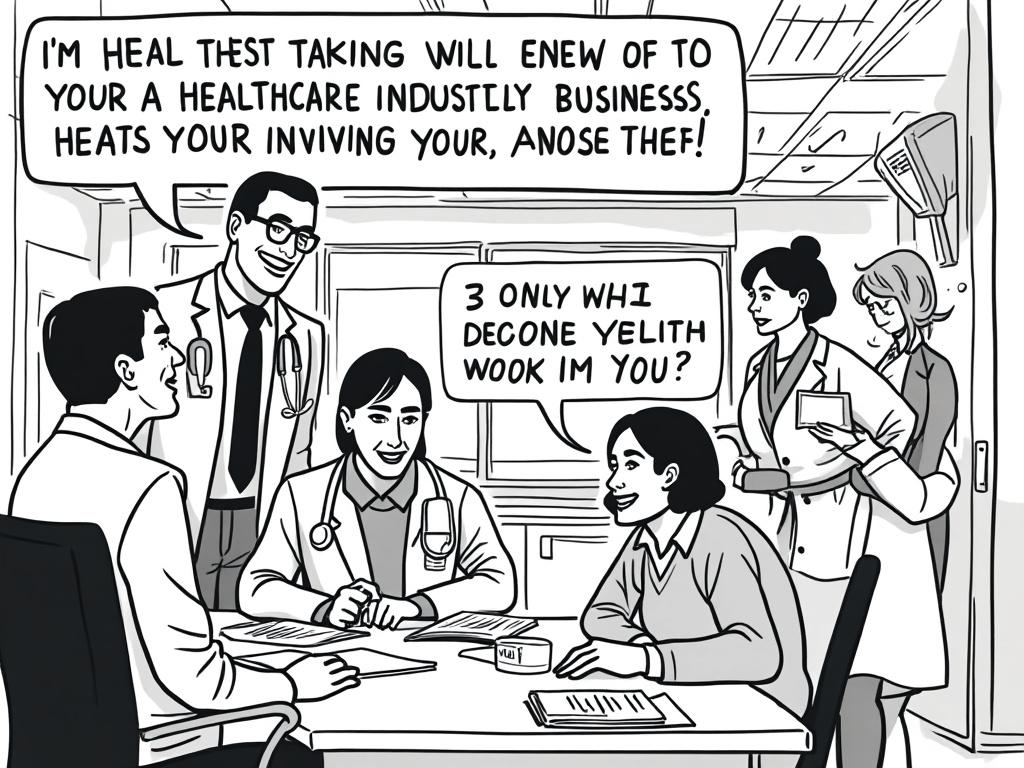
Healthcare Investment Renaissance: Greece’s Medical Sector and Tourism Boom in 2025
Reading time: 12 minutes
Ever wondered where savvy investors are placing their healthcare bets in 2025? Greece is emerging as an unexpected powerhouse, combining strategic location, cost advantages, and government backing to transform its medical sector. Let’s explore why this Mediterranean nation is attracting billions in healthcare investments.
Table of Contents
- Market Overview: Greece’s Healthcare Revolution
- Strategic Hospital Investments Reshaping the Landscape
- Medical Tourism: The €2.5 Billion Opportunity
- Investment Framework and Financial Incentives
- Navigating Challenges: Practical Solutions for Investors
- Your Healthcare Investment Roadmap
- Frequently Asked Questions
Market Overview: Greece’s Healthcare Revolution
Here’s the straight talk: Greece’s healthcare sector isn’t just recovering—it’s experiencing a complete transformation. The numbers tell a compelling story: healthcare investments reached €1.8 billion in 2024, with projections indicating a 35% increase for 2025.
The Greek government’s National Recovery and Resilience Plan has allocated €2.1 billion specifically for healthcare infrastructure modernization, creating unprecedented opportunities for private investors. This isn’t just about fixing an old system—it’s about building a world-class healthcare destination.
Key Market Drivers
Three fundamental forces are reshaping Greece’s healthcare landscape:
- Demographic Shift: An aging population requiring specialized care services
- Geographic Advantage: Strategic position between Europe, Asia, and Africa
- Cost Competitiveness: 40-60% lower operational costs compared to Western European counterparts
Dr. Maria Konstantinou, Director of Healthcare Investment at Eurobank, explains: “We’re witnessing a perfect storm of government support, EU funding, and private sector interest. The healthcare sector offers returns of 12-18% annually, significantly higher than traditional real estate investments.”
Investment Climate Analysis
Healthcare Investment Attractiveness Index 2025
85%
78%
82%
72%
69%
Strategic Hospital Investments Reshaping the Landscape
The hospital investment boom isn’t just about building new facilities—it’s about creating integrated healthcare ecosystems. Private hospital operators are leading this transformation with strategic acquisitions and greenfield developments.
Major Investment Players
Case Study: Metropolitan Hospital Group’s Expansion
Metropolitan Hospital Group’s recent €180 million investment in Athens showcases the sector’s potential. Their new 300-bed facility combines cutting-edge technology with luxury amenities, targeting both domestic patients and international medical tourists. The project achieved break-even within 18 months—unprecedented speed in the healthcare sector.
Key success factors included:
- Strategic location near Athens International Airport
- Partnerships with leading European medical centers
- Integration of AI-powered diagnostic systems
- Multilingual staff and international patient services
Specialized Healthcare Segments
Smart investors are focusing on high-demand specialties:
Oncology Centers: With cancer treatment costs 50% lower than Germany or Switzerland, Greece is attracting significant oncology investments. The new Hellenic Cancer Institute in Thessaloniki represents a €95 million commitment to cutting-edge cancer care.
Cardiac Surgery: Greek cardiac surgeons maintain excellent international reputations, making this specialty particularly attractive for medical tourism investments.
Orthopedics and Rehabilitation: The combination of skilled surgeons and Greece’s favorable climate for recovery creates compelling investment opportunities.
| Investment Segment | Average ROI | Investment Range | Payback Period | Risk Level |
|---|---|---|---|---|
| General Hospitals | 12-15% | €50-200M | 7-9 years | Medium |
| Specialty Clinics | 18-22% | €10-50M | 4-6 years | Low-Medium |
| Diagnostic Centers | 15-20% | €5-25M | 3-5 years | Low |
| Rehabilitation Centers | 16-19% | €8-35M | 5-7 years | Medium |
| Medical Tourism Facilities | 20-25% | €15-75M | 3-4 years | Medium-High |
Medical Tourism: The €2.5 Billion Opportunity
Greece’s medical tourism sector is experiencing explosive growth, with international patient arrivals increasing by 45% in 2024. This isn’t just about cost savings—it’s about combining world-class medical care with an exceptional patient experience.
The Competitive Edge
What makes Greece irresistible to medical tourists? The answer lies in a unique value proposition:
Cost Advantage: Medical procedures cost 40-70% less than in Western Europe or North America, without compromising quality. A knee replacement that costs €25,000 in Germany can be performed in Greece for €8,000-12,000.
Quality Standards: Greek medical schools produce doctors who train and work internationally, bringing global expertise back home. Many Greek hospitals maintain JCI (Joint Commission International) accreditation.
Recovery Environment: The Mediterranean climate and beautiful surroundings create ideal conditions for post-treatment recovery, extending stays and increasing revenue per patient.
Success Story: Cosmetic Surgery Tourism
Athens Aesthetic Center exemplifies medical tourism success. Founded in 2019 with a €12 million investment, the facility now serves 2,500 international patients annually, generating €18 million in revenue. Their secret? Combining top-tier cosmetic surgery with luxury accommodation and comprehensive patient care packages.
Their model includes:
- All-inclusive packages covering surgery, accommodation, and recovery
- Partnerships with luxury hotels for extended stays
- Multilingual staff and cultural liaison services
- Post-operative care and follow-up programs
Target Markets and Growth Projections
Medical tourism investors should focus on these high-potential source markets:
Primary Markets: Germany, UK, and Cyprus account for 60% of medical tourists, seeking cost-effective procedures with EU healthcare standards.
Emerging Markets: Middle Eastern patients represent the fastest-growing segment, with 85% annual growth in 2024. These patients typically opt for high-value procedures and extended stays.
North American Market: Despite longer travel distances, American patients are increasingly choosing Greece for major procedures, attracted by significant cost savings and shorter waiting times.
Investment Framework and Financial Incentives
Navigating Greece’s healthcare investment landscape requires understanding the regulatory framework and available incentives. The good news? The government has streamlined processes to attract foreign investment.
Key Legislation and Regulations
The Investment Incentives Law 4399/2016 provides the foundation for healthcare investments, offering:
- Tax Incentives: Up to 50% reduction in corporate tax rates for qualifying healthcare investments
- Fast-Track Licensing: Streamlined approval processes reducing licensing timeframes by 60%
- EU Funding Access: Eligibility for European Regional Development Fund grants up to €10 million per project
For international investors looking to establish a presence in Greece, understanding the broader real estate market is crucial. Many healthcare investors also buy property in Greece to support their operations and accommodate international medical staff.
Financial Incentives Breakdown
Direct Grants: The Greek government offers grants covering 20-35% of total investment costs for healthcare projects exceeding €3 million.
Loan Guarantees: State-backed loan guarantees up to €25 million reduce financing costs and improve access to capital.
Accelerated Depreciation: Healthcare equipment can be depreciated over 3-5 years instead of standard 7-10 years, improving cash flow.
Investment Process Roadmap
Successful healthcare investment in Greece follows a structured approach:
- Market Research and Site Selection: Identify target demographics and optimal locations
- Legal Structure Setup: Establish appropriate corporate structure for tax optimization
- Licensing Applications: Submit applications for healthcare operation licenses
- Funding Arrangement: Secure financing and apply for government incentives
- Construction/Renovation: Execute facility development with approved contractors
- Staff Recruitment: Hire qualified medical and administrative personnel
- Operational Launch: Begin operations with phased patient intake
Navigating Challenges: Practical Solutions for Investors
Every investment opportunity comes with challenges. In Greece’s healthcare sector, successful investors anticipate and address these common obstacles:
Challenge 1: Regulatory Complexity
The Problem: Greece’s healthcare regulations can be complex, with multiple approval layers and changing requirements.
Practical Solution: Partner with local healthcare law firms specializing in medical facility licensing. Firms like Potamianos & Associates have guided over 200 healthcare investments through the regulatory maze, reducing approval timeframes by an average of 40%.
Pro Tip: Engage regulatory consultants before site selection. Understanding zoning restrictions and healthcare facility requirements early prevents costly redesigns later.
Challenge 2: Staff Recruitment and Retention
The Problem: Greece’s brain drain has created shortages in specialized medical professionals, particularly in rural areas.
Practical Solution: Develop partnerships with Greek medical schools and implement “return migration” programs. Offer competitive packages including housing assistance, continuing education opportunities, and international conference participation.
Success Example: Hygeia Hospital Group’s fellowship program brings Greek doctors working abroad back to Greece for 2-3 year assignments, with 70% choosing to stay permanently.
Challenge 3: Insurance and Payment Systems
The Problem: Greece’s complex insurance landscape includes public insurance (EOPYY), private insurance, and international insurance coordination.
Practical Solution: Implement comprehensive billing systems that handle multiple payment sources. Partner with international insurance networks early to streamline claims processing.
Revenue Optimization Strategy: Develop tiered service offerings—basic care for domestic patients, premium services for international patients, and luxury packages for medical tourists.
Your Healthcare Investment Roadmap
The convergence of demographic trends, government support, and market demand creates a compelling investment thesis for Greece’s healthcare sector. But success requires strategic thinking and careful execution.
Five Strategic Next Steps for Investors
- Conduct Market Reconnaissance: Visit Greece in Q1 2025 to assess opportunities firsthand. Meet with local partners, tour existing facilities, and understand competitive dynamics.
- Build Strategic Partnerships: Establish relationships with Greek medical professionals, local developers, and government officials. These connections will prove invaluable throughout your investment journey.
- Secure Preliminary Approvals: Begin the licensing process early, even before finalizing investment decisions. This parallel approach can reduce time-to-market by 6-12 months.
- Develop Financial Models: Create detailed financial projections incorporating all available incentives and realistic patient volume assumptions. Factor in seasonal variations for medical tourism.
- Plan for Scale: Design initial investments with expansion capability. Greece’s healthcare market will continue growing, and early movers with scalable operations will capture disproportionate value.
The Broader Healthcare Investment Landscape
Greece’s healthcare transformation reflects broader European trends toward healthcare consolidation and medical tourism growth. Investors who establish strong positions now will benefit from first-mover advantages as the market matures.
The integration of technology, personalized medicine, and patient experience will define the next decade of healthcare investing. Greece’s combination of skilled professionals, government support, and strategic location positions it uniquely to capture this evolution.
Are you ready to be part of Greece’s healthcare investment renaissance? The window of opportunity is open, but early action will determine who captures the greatest returns in this transforming market.
Frequently Asked Questions
What is the minimum investment required for healthcare projects in Greece?
The minimum investment varies by project type, but most successful healthcare investments start at €3-5 million for specialty clinics and €15-25 million for general hospitals. Diagnostic centers can be established with €2-3 million, while comprehensive medical tourism facilities typically require €10-20 million. Government incentives become more attractive at investment levels above €3 million, making this an effective minimum threshold for accessing grants and tax benefits.
How long does it take to obtain healthcare facility licenses in Greece?
Standard licensing timelines range from 12-18 months for new facilities, though the government’s fast-track program can reduce this to 8-12 months for qualifying investments above €5 million. The process involves multiple stages: initial permits, construction approvals, equipment certification, and operational licensing. Working with experienced local partners and submitting complete applications can significantly accelerate approvals. Recent regulatory improvements have reduced average licensing time by 35% compared to 2022.
What are the most profitable medical tourism specialties in Greece?
Cosmetic surgery and dental procedures generate the highest profit margins, with average returns of 22-28%. Orthopedic surgery and cardiac procedures offer strong returns of 18-24% with higher patient volumes. Fertility treatments and eye surgery are emerging as high-growth segments with 15-20% annual patient increases. The key to profitability lies in combining clinical excellence with comprehensive patient experience packages, including accommodation, transportation, and post-procedure care services.

Article reviewed by Sebastian Laurent, EU Infrastructure Funds | Cross-Border Public-Private Partnerships, on June 4, 2025
